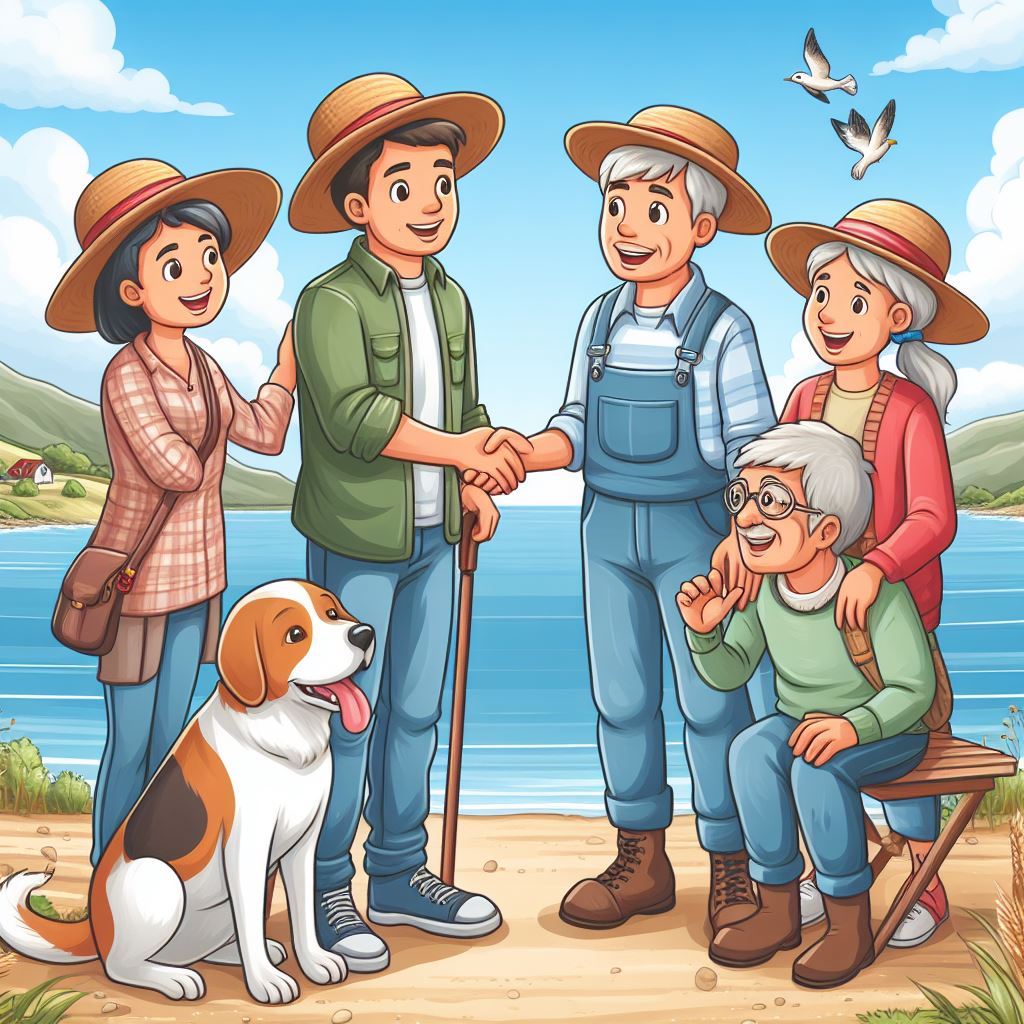(inspired by an article “Why you should talk to strangers” by Gillian Sandstrom, The Psychologist June 2023)

I’ve had some memorable interactions with strangers, but one sticks in my mind from about 10 years ago. I was on the Heathrow express travelling back from Washington DC where I’d been working. The train stopped in the tunnel, and we were told to leave the carriage and walk along the tracks to the next station. A man who looked very much like Father Christmas – white hair white beard and very tall, offered to carry my suitcase for me and we got talking. His name was George and it turned out he had been the scientific advisor to the White House under George Bush Snr and later Bill Clinton. More on that later….
What does psychological research tell us about talking to strangers?
Perhaps it’s not surprising that talking with strangers can contribute to our well-being. Some researchers asked commuters in Chicago to talk to someone on the train. The outcome was that people left the conversation and the train, in a much better mood. A similar study done in Starbucks, showed that people felt more connected to others when they turned a transactional interaction (buying a coffee) into a social opportunity.
Research also suggests that we can also learn more from talking with strangers than from talking with our usual friends and neighbours.
What turns us off talking to strangers?
There’s a lot to worry about when it comes to talking to people we don’t know. What if I’m bothering them? What if they don’t like me or I don’t like them? How will I finish the conversation? Research suggests that we expect that it will be better to sit in silence rather than talk to someone we don’t know.
It turns out these are fears that almost everyone has. Even people who on the surface seem super confident.
Most people also fear the worst before they speak to a stranger but when they report back on their actual experience, things go a lot better than they expect.
I believe that making the world a little friendlier, a little more trusting and a little better, can begin with something as simple as “hello”.
People underestimate how much they will like the person they meet, and how much they seem to be liked – psychologists call this “the liking gap”.
Most people overlook the positive signals coming from the person they are talking with and tend to focus on what they think they did badly in the encounter.
How much we personally worry about talking to strangers is likely to be linked to where you live or grow up. Different places have different norms about when, where and with whom it is (not) ok to talk. I grew up in London, and you only need to watch people on the tube to learn the unwritten rule of “don’t look up!” in case you catch someone else’s eye. Is Rhossili any different do you think?
Why do we need to talk to strangers?
Talking to strangers makes the world a better place. Why? Interacting with others connects us. It acknowledges our shared humanity and reduces the “them and us” phenomenon. This is when we fear or reject people who aren’t like us, and this can even include people who come from other villages close by!

A study led by Claudia Hammond (BBC Radio 4, and Sussex University) did the world’s largest study on kindness. They found that when asked, 10% of people said that their most recent act of kindness had come from a stranger. They talked about helping with heavy groceries, sharing an unexpired parking ticket, a smile, compliment, or friendly chat. These are small humanising acts that cost us little time but can be more meaningful than we realise.
If you think talking to strangers is a daunting thing to do, it might help to think that by doing so you could give someone the gift of being seen or being welcomed into the community. You might also be connecting with someone who is feeling lonely, or who is feeling isolated from our community.
The trouble is, as a society we have designed out more and more opportunities for social contact. Self-service checkouts, bank machines, pay at the pump petrol stations may all seem like a good idea if you feel a bit socially anxious. But the less you use your social skills the rustier you will become. It’s a small step from here to believing you don’t have any social skills, and then to thinking that other people don’t think you have any social skills, so won’t want to talk to you. By now you may start avoiding all social interactions and withdraw more and more… and then we start to see a loneliness epidemic.
But it turns out we can get better at talking to strangers because there is a pattern to the conversation, we which can learn. Basically, the more often we do it, the better we get at it and the less scary it feels.
It just begins with hello…

It’s over ten years since George carried my suitcase and that conversation gave me one of the most exciting adventures of my career. I ended up working with his organisation in the US, running a major conference for virologists, epidemiologists, and government policy advisors from around the world. I then helped to publish a book on the threat of new emerging viruses and the growing likelihood of a global pandemic occurring, due to viruses jumping from other species into man. Sound familiar?
However, it’s the little everyday conversations in Rhossili that I treasure. I enjoy recognising faces of people in the community who are no longer strangers, and stopping to chat to others who are visiting our village. Of course, a dog is a great conversation starter – particularly Dylan, who greets everyone like a long-lost friend who has a fillet steak in their pocket… Dylan’s helped me realise how important it is to interact with people – to talk with strangers, to become part of a community.
I believe that making the world a little friendlier, a little more trusting and a little better can begin with something as simple as “hello”.
Gill Boulding
* This article is aimed at adults only and in no way suggests that children should be encouraged to speak to strangers unless they are accompanied by a known adult.
All images generated by AI 01/01/2024

